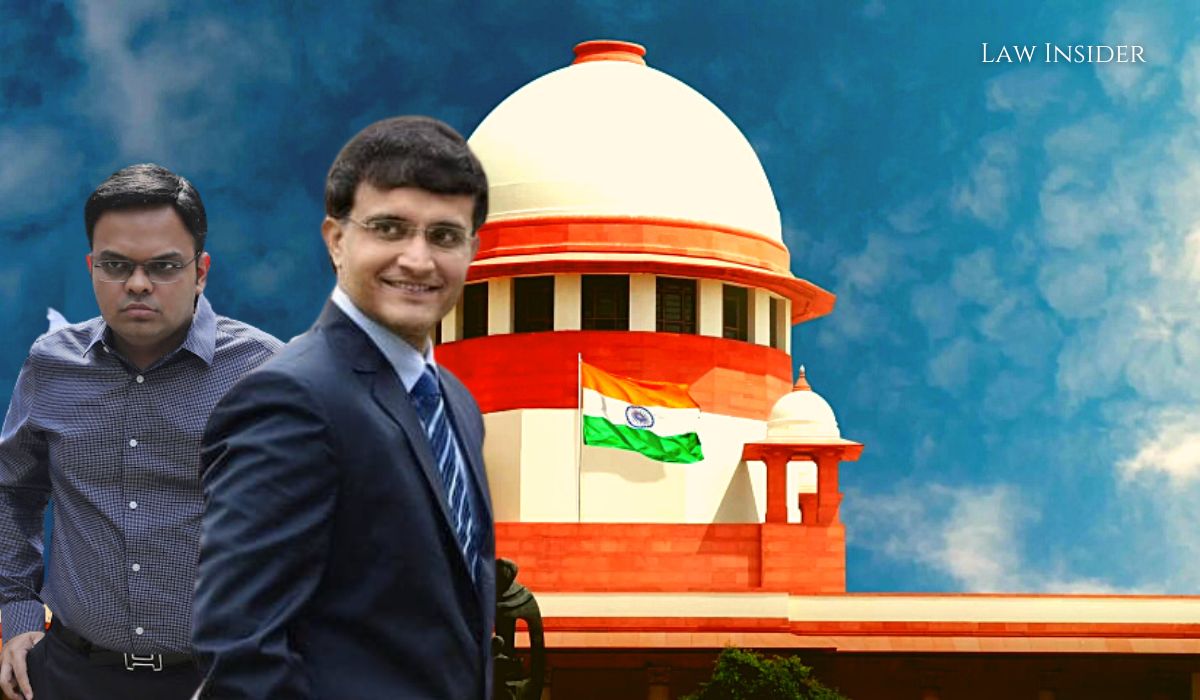Prerna Gala
Published on: 15 September, 2022 at 17:43 IST
The Board of Control for Cricket in India (BCCI) had its constitution modified by the Supreme Court in order to require officeholders to serve a mandatory three-year cooling-off period after serving one term in office [The Board of Control for Cricket in India v. Cricket Association of Bihar].
A bench of judges led by DY Chandrachud and Hima Kohli issued an order regarding the BCCI’s current cooling-off period rule, which said that it would be put into effect following one three-year term.
“This is unduly stringent and needs to be modified with regard to the purpose with which cooling off periods were introduced. We’re of the view that the proposed amendment would not dilute the spirit and object of the cooling-off period, if implemented after an individual has completed two terms at either BCCI or State federations. We therefore accept this amendment.”
As a result, Sourav Ganguly, president of the BCCI, and Jay Shah, secretary, would be able to keep their positions.
The Court in its judgement stated that the oddity with the proposed modifications as they are currently written, which would let one to keep running for State and BCCI administration roles provided they alternate every six years.
“Then that cycle will go on, two terms in each. We’ll exclude that. We’ll say someone from State association, as per what the SG was saying, can apply for two terms in BCCI. Else cooling off [will be] applied if someone has 6 years in either.”
The bench also approved changes to the disqualifications for individuals with criminal charges (now changed to those with convictions) and those from public office in its order (to only include ministers and public servants).
Additionally, it made it possible for cricket players who participated in other sports to run for government office.
Case Background:
Any person who has served as an office bearer for six years in either the BCCI, a State Cricket Association, or a combination of both must wait three years before running for reelection, according to the recommendations of the Justice RM Lodha Committee.
As a result, both Ganguly and Shah would have had to resign from their positions as they had each served as office holders for the Cricket Association of Bengal and the Gujarat Cricket Association for a total of six years.
The Supreme Court named Maninder Singh, a senior attorney and former additional solicitor general, as an amicus curiae in the case in July.
Before the three-year cooling-off period mandated by the Justice Lodha committee begins, the Bench stated verbally yesterday that office-holders of the BCCI and state cricket organisations would be allowed to serve two consecutive terms.
However, the Court had raised concerns about the proposal to eliminate the requirement that office holders and International Cricket Council (ICC) representatives be at least 70 years old. The Court had also raised concerns about the proposal to eliminate the disqualifications associated with having criminal charges and holding public office or controlling another sports organisation.
Arguments in Court of Law:
After hearing from Amicus Curiae Senior Advocate Maninder Singh, Justice Kohli remarked that administrators might avoid the cooling-off period when switching to the BCCI, making a 12-year overall term across the BCCI and State associations plausible.
“To address that concern, we can say after two State terms cooling off will be must, and after two State terms only one BCCI term can be allowed before cooling off,” the Bench suggested.
A BCCI office-bearer position, according to Solicitor General (SG) Tushar Mehta, is something that is obtained through election rather than a kind gift. Because six years is a very long time,
The Bench then proposed that three-year cooling-off periods be uniformly applied to that level following the completion of two terms. The judges orally stated that the time would be applicable after 12 years for both State and BCCI seats.
The Bench commented on the provision that prohibits someone facing criminal charges from contesting,
The Bench questioned their locus standi and sought specific objections from the respondent’s counsel after they continued to express resistance to the suggested revisions.
After hearing him out and praising his “spirited” arguments, Justice Chandrachud stated that-
“At the end of the day we have the highest respect for the [Lodha] committee, but we are not cricketers and are regulating the affairs of an autonomous body, and must give them leeway so long as they aren’t going against the spirit of our judgment … Indian cricket is successful not because of judicial review but because of its administration”.
Decision Rendered:
The Bench examined the arguments made by counsel to eliminate specific clauses through the agreed suggested revisions in its order.
The judgement states that the idea of only allowing individuals who have been found guilty to run for office rather than those who have been charged is “to protect office bearers who may suffer unjustified prosecution.”
The bench also ruled on the argument that only ministers and public employees should be subject to the prohibitions against holding public office.
“These changes do not detract from the spirit of our original judgment and are hence accepted.”

